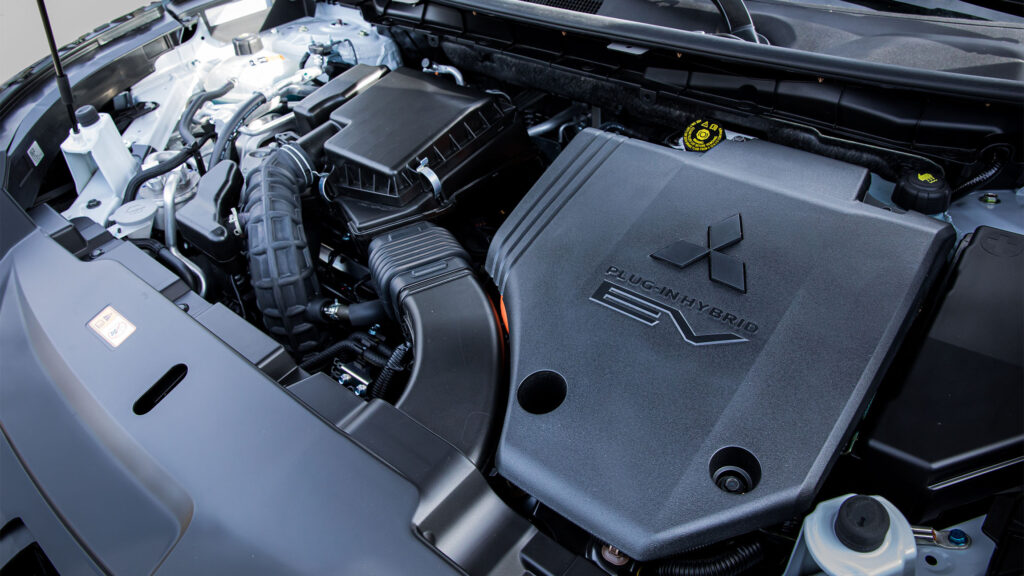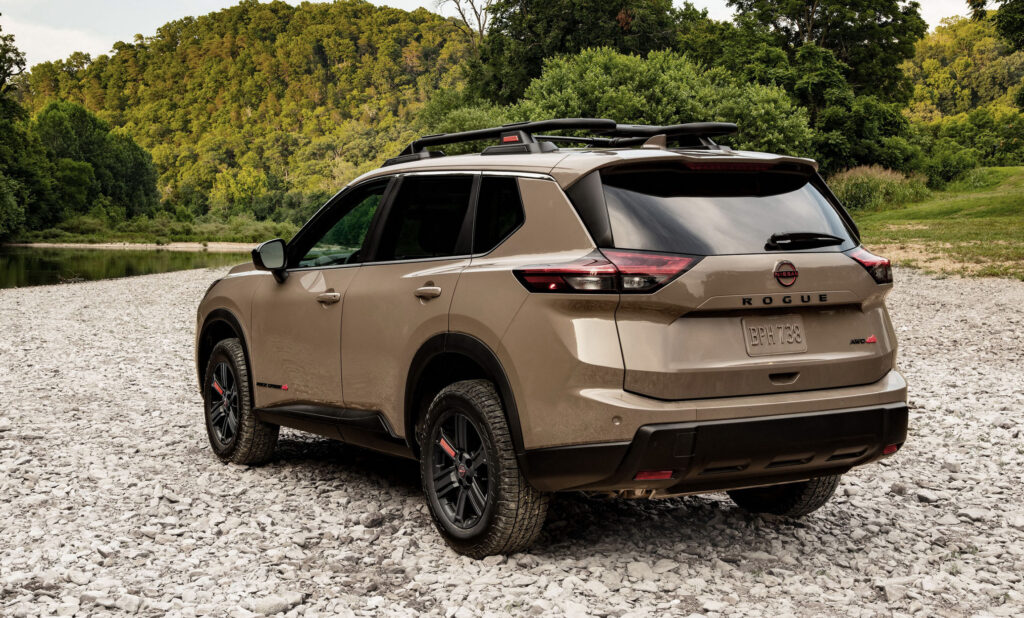Nissan Rogue PHEV Coming In 2025, Range-Extended EVs To Follow
- Nissan has reportedly confirmed plans to offer a Rogue PHEV in the United States.
- It will reportedly arrive next year as a 2026 model and borrow heavily from the Mitsubishi Outlander PHEV.
- The company’s range-extended e-Power technology is also slated to come to America in 2026.
With the electric revolution running out of juice, a number of automakers have pivoted back to hybrids. That appears to include EV pioneer Nissan, which has reportedly confirmed plans for a Rogue plug-in hybrid.
According to Car & Driver, the eco-friendly crossover will arrive next year and become the brand’s first PHEV in America. Details are limited, but the model is expected to borrow heavily from the Mitsubishi Outlander PHEV. In its current iteration, the North American Outlander pairs a 2.4-liter four-cylinder engine with two electric motors, delivering a combined output of 248 horsepower.
Read: Nissan Debuts All-New 2025 Murano With A Four-Cylinder Turbo
However, that particular crossover was recently updated overseas, and Mitsubishi has confirmed that the model will be “refreshed in markets including North America, Australia, and New Zealand in due course.” If the Rogue PHEV benefits from those changes, we can likely expect a similar 2.4-liter gasoline engine, two electric motors, and a 22.7 kWh lithium-ion battery pack. This setup gives the latest Outlander PHEV an electric-only WLTP range of up to 53 miles (86 km).

If the model doesn’t receive the larger battery—at least at launch—we could see a smaller 20 kWh unit, which would likely deliver an EPA-rated electric-only range of around 38 miles (61 km). As for performance, the crossover is expected to have a combined output of 248 horsepower (185 kW / 251 PS) and 332 lb-ft (450 Nm) of torque.
More: Nissan Rethinks US Plans After Missing Hybrid Wave
The Rogue PHEV will reportedly be followed by e-Power models arriving in 2026. While there’s no confirmation yet on which US.-spec vehicles will receive the e-Power option, these models are essentially range-extended EVs. Unlike traditional hybrids, the wheels are powered exclusively by electric motors, with a gasoline engine onboard serving as a generator to recharge the battery. This setup offers a different approach to electrification, providing the benefits of electric driving without the range anxiety typically associated with fully electric vehicles.
